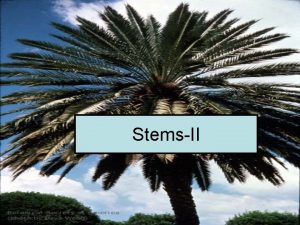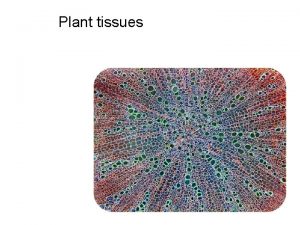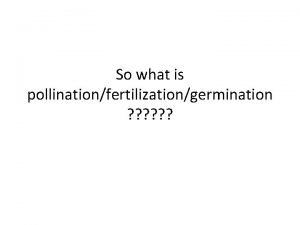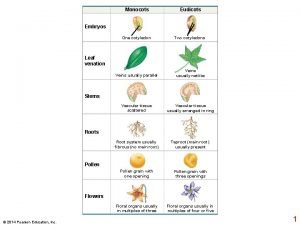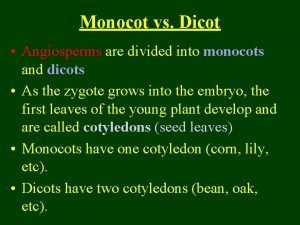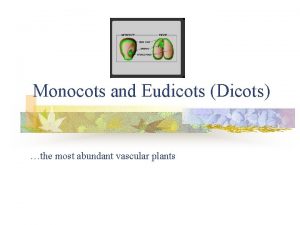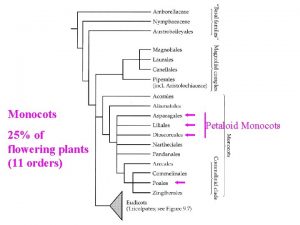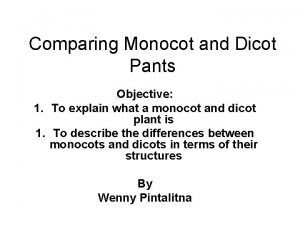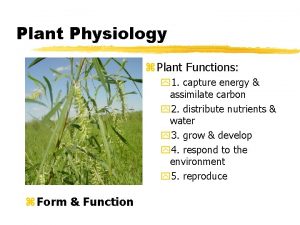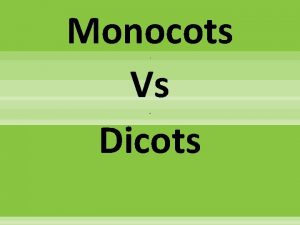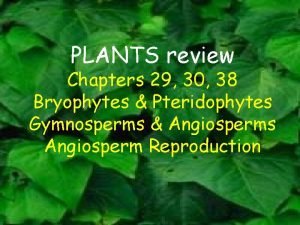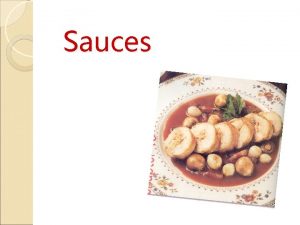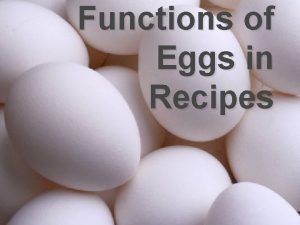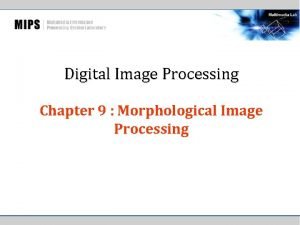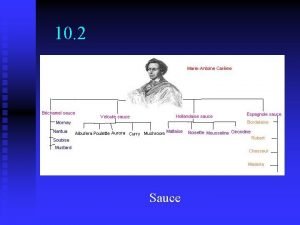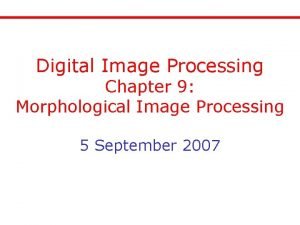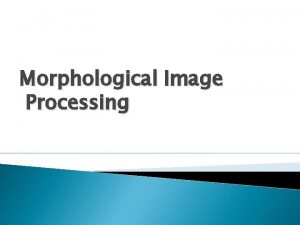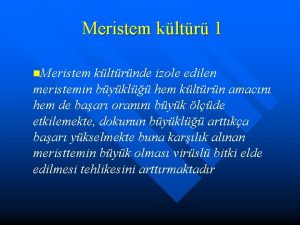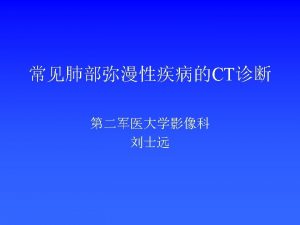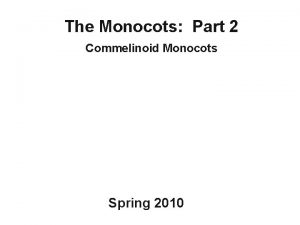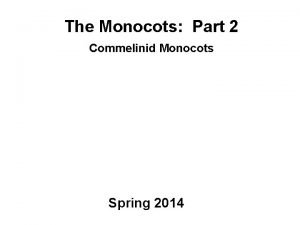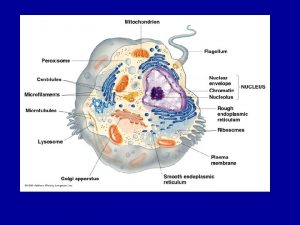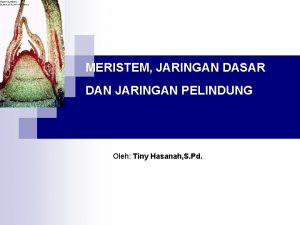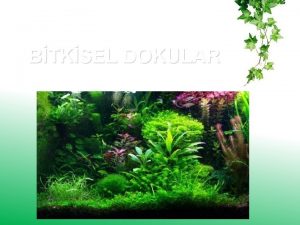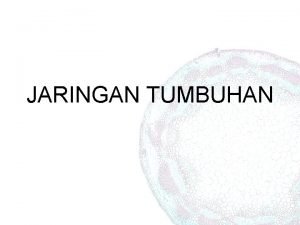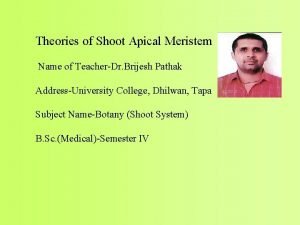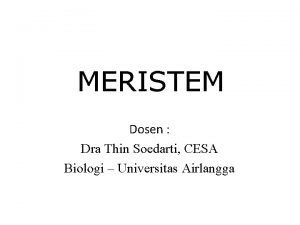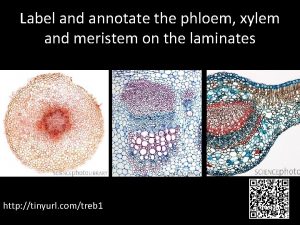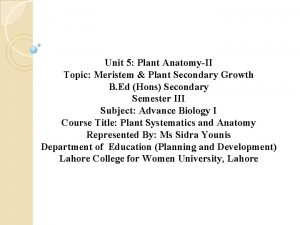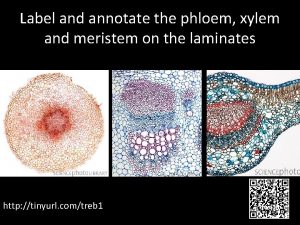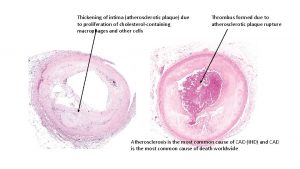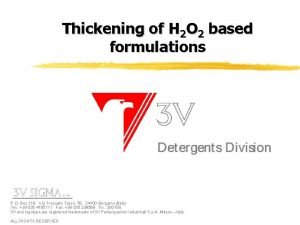StemsII Primary thickening meristem occurs in many monocots
























- Slides: 24

Stems-II

Primary thickening meristem occurs in many monocots

Primary thickening meristems

Primary Thickening Meristem

Banana “tree”

Foxglove vascular ring

Eustele in dicots

Alfalfa and ragweed VB

Clover fasicular cambium spreads to interfasicular region

Secondary growth restricted to VB

Ordinary secondary growth in dicots and gymnosperms secondary xylem and phloem develops from the vascular cambium

Anomalous Secondary Growth • Localized cambial activity because some regions of cambium die • Uneven amounts of xylem and phloem • Multiple cambia develop • Concentric (or successive) layers of vascular cambium • Monocots

Monocots Yucca brevifolia Cocus nutifera

Cordyline (Ti plant)

Secondary Growth in Monocots • Meristem (cambium) becomes distinct outside the outmost VB in the stem • Secondary Thickening Meristem produces – Cells outward that differentiate into parenchyma becoming part of a secondary cortex – Cells produced inward are either • Conjunctive parenchyma that become sclerified • Parenchyma that differentiates into fibrovascular bundles (called secondary bundles)

Secondary thickening meristem in Cordyline (Ti plant)

Palm trunk Royal palm

Palm trunk

Stems (gymnosperms, dicots, and monocots) also contain a variety secretory structures Ducts may contain resins, gums, mucilage produced by parenchyma (epithelial) cells lining the duct Resin ducts in Pinus and in Artemesia

Resin duct in poison ivy stem

Oil and mucilage cells

Laticifers • Secretory structures (of one or more cells) that produce latex (latex is a milky secretion produced by many plants with varied composition – Non-articulated laticifers consist of extremely elongated single cells (cell growth keeps pace with the growth of the stem) – Articulated laticifers are composed of many individual cells that are usually interconnected by holes in their common walls (like vessels)

Non-articulated laticifer in Euphorbia

Articulated laticifers
 Primary thickening meristem in monocots
Primary thickening meristem in monocots 3 tissues of a plant
3 tissues of a plant Difference between monocot and dicot
Difference between monocot and dicot Root hair structure
Root hair structure Monocots and eudicots
Monocots and eudicots Monocots and eudicots
Monocots and eudicots Monocot orders
Monocot orders Comparing monocots and dicots
Comparing monocots and dicots Www.youtube.com
Www.youtube.com Monocots vs dicots
Monocots vs dicots Monocots vs dicots
Monocots vs dicots Plant reproduction
Plant reproduction Nourishing element
Nourishing element Classification of thickening agents
Classification of thickening agents Mother sauces and derivatives
Mother sauces and derivatives Shear thinning vs shear thickening
Shear thinning vs shear thickening Emulsifier recipes
Emulsifier recipes Thinning and thickening in image processing example
Thinning and thickening in image processing example Mother sauces derivatives
Mother sauces derivatives Ligamentum flavum thickening
Ligamentum flavum thickening Peribronchial cuffing
Peribronchial cuffing Ligamentum flavum thickening
Ligamentum flavum thickening Thickening of uterine lining
Thickening of uterine lining Morphological dilation
Morphological dilation Erosion image processing
Erosion image processing
